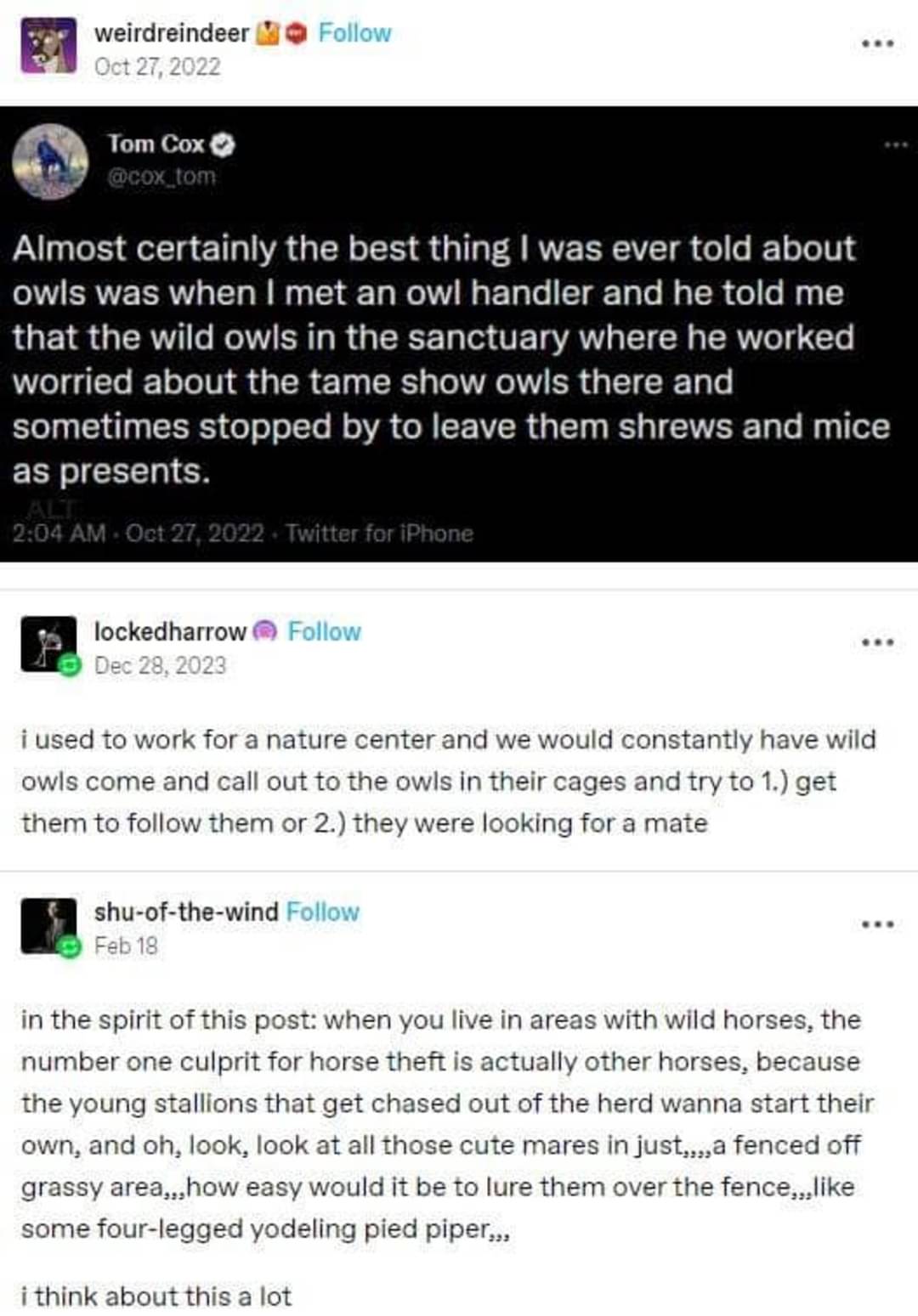Slightly off topic question. Science memes is a popular community and I enjoy seeing it in my feed. However I always find the images to load really slowly, and half the time the thumbnails are missing. Is mander.xyz under heavy load or being ddos'd?
The packets wait for peer review before going to your feed
Haha meta :)
Well at least we figured out who Reviewer 2 is.
I've noticed this too.
Same. N=3 at this point.
I guess I'll say "same" too. Not the only feed, but it's a noticeable one.
I have not noticed this and I'm on a different instance. Figured some data to the contrary would be helpful as well.
Instance name checks out.
Read this comment because the image didn't load and wanted to know what the image was about
Just want to report that I don't have this problem with my lemdro.id account using Voyager app. Not sure why.
Iirc someone said it's because of the different version?
I had 2 pet female rats a few years ago and for two years, a wild male rat lived in and around my (old) house for almost two years. I could not catch this ballsy rat with any attempt or trap known to man. One time the rat squared up with me on the stairs and I swear to god I ran away first. anyways I named him Ratboi and put up warning signs about him at rat eye level but he WANTED my girls. All of their rags and bedding would be pulled through the bars of the cage and chewed on and stuff. It was wild. Anyways.
rats are simply too smart man, I recently became an owner of two rat boys and in two months they learnt to open their cage (first two weeks actually), foiled my ratproofing 5 separate times, learnt they get farther into the forbidden zone (the bin) if i'm not looking and redecorated their cage too many times to count. All those smarts and they're using so much of it for crimes
Time to get a third rat and pay it to become an opressive police force and isntitute a rat police state.
You cannot contend with the power of love
Nono keep going.
"and try to they were looking for a mate"
"like a four legged yodeling pied piper" More like five legged amirite?
on my old drive to work there used to be a horse that belonged to the Traveller community (rural england) with a fucking massive dong it used to wave at all the traffic 🥲
Hell yeah free your comrades!!
Science Memes
Welcome to c/science_memes @ Mander.xyz!
A place for majestic STEMLORD peacocking, as well as memes about the realities of working in a lab.

Rules
- Don't throw mud. Behave like an intellectual and remember the human.
- Keep it rooted (on topic).
- No spam.
- Infographics welcome, get schooled.
This is a science community. We use the Dawkins definition of meme.
Research Committee
Other Mander Communities
Science and Research
Biology and Life Sciences
- !abiogenesis@mander.xyz
- !animal-behavior@mander.xyz
- !anthropology@mander.xyz
- !arachnology@mander.xyz
- !balconygardening@slrpnk.net
- !biodiversity@mander.xyz
- !biology@mander.xyz
- !biophysics@mander.xyz
- !botany@mander.xyz
- !ecology@mander.xyz
- !entomology@mander.xyz
- !fermentation@mander.xyz
- !herpetology@mander.xyz
- !houseplants@mander.xyz
- !medicine@mander.xyz
- !microscopy@mander.xyz
- !mycology@mander.xyz
- !nudibranchs@mander.xyz
- !nutrition@mander.xyz
- !palaeoecology@mander.xyz
- !palaeontology@mander.xyz
- !photosynthesis@mander.xyz
- !plantid@mander.xyz
- !plants@mander.xyz
- !reptiles and amphibians@mander.xyz
Physical Sciences
- !astronomy@mander.xyz
- !chemistry@mander.xyz
- !earthscience@mander.xyz
- !geography@mander.xyz
- !geospatial@mander.xyz
- !nuclear@mander.xyz
- !physics@mander.xyz
- !quantum-computing@mander.xyz
- !spectroscopy@mander.xyz
Humanities and Social Sciences
Practical and Applied Sciences
- !exercise-and sports-science@mander.xyz
- !gardening@mander.xyz
- !self sufficiency@mander.xyz
- !soilscience@slrpnk.net
- !terrariums@mander.xyz
- !timelapse@mander.xyz
